ENGINEERING FEATURE LENGTH, LEEDS CITY COLLEGE
TRANSCRIPT
INTERVIEWEES – Harry – BTEC Level 3 – Engineering (SPEAKING), Harrison – Apprentice – Paint & Body (SPEAKING), Matt Coggins – Deputy Head of Motor Vehicle (SPEAKING), Alec Besant – Programme Manager – Mechanics (SPEAKING), Christopher Lang – Course Leader – Electrical Installation (SPEAKING)
Scenery – A tutor opening a tool box and a student pulling a tool out of it.
Scenery – Students putting on PPE.
Opening slide – Leeds City College Logo
Scenery – A close up shot of a student welding.
Harry – “It’s a real passion for me being able to actually build circuits and understand how they work testing and measuring and stuff, I found I learnt a lot more from that than I did studying GCSE physics and studying electronics in that for 2 years. Where I never actually touched or saw a circuit.”
Scenery – A student lifts his welding helmet to check his work and then discusses it with a tutor.
Scenery – A tutor is demonstrating how the welding equipment works.
Harry – “The tutors here they are really interactive, they are always there even outside of lessons whenever you need something. We don’t go around calling everyone Sir and Miss, second names, we use first names for everything and there’s a more relaxed and friendly communication between the tutors and the students.”
Scenery – A student is operating metal working machinery under the guidance of a tutor.
Harrison – “Before I came to Leeds City College I was in school, I was in such a bad way at school. Skiving lessons all the time, teachers always on my case, getting kicked out numerous times almost. So I applied for here hoping to get on a course I got accepted but it was on entry level 3. Dave was my tutor and I couldn’t have asked for anyone better as a tutor because he just helped me, he helps me in every regard with maths & english, workshop work and the theory side of the workshop work, telling me how everything is and showing me what’s what.”
Scenery – A tutor and student are in the paint spraying booth in full PPE learning how to use the equipment.
Harrison – “Being in the booth is quite zen to be honest, you just get in there with the panel you’re going to be spraying, spray gun all hooked up, mask down and you’re just away with your own thoughts spraying away until you get the job done. It’s quite peaceful. If you do go in there and you do have any negative thoughts or anything like that, you’ll come out and leave and you’ll have peace of mind then.”
Scenery – The student is preparing the panel for spraying and ensuring the spray gun is set up correctly.
Scenery – The student begins to spray the car panel under the guidance of a tutor.
Scenery – A tutor opens a tool box and removes a socket from the socket set.
Matt Coggins – “I’m Matthew Coggins and I’m the deputy head of motor vehicle at Leeds City College.”
Scenery – A tutor and student lift the bonnet on a car.
Matt Coggins – “Students come with very little knowledge or some knowledge of how a motor vehicle works. Normally they enter at Level 1, we have some students entering at Level 2. Level 1 teaches a student everything that’s basic about a car, how an engine operates, cooling system, lubrication. We build on that at Level 2 with transmission and electrics thrown in and then at Level 3 it’s about diagnosing the faults so it’s a full process from beginning to know how a car operates through to knowing how to diagnose a faulty system on a vehicle.”
Scenery – A student is removing a bolt from the underside of a car under the guidance of a tutor.
Scenery – A shot of the safety and danger signage on an electric vehicle that is currently undergoing maintenance.
Alec Bessant – “The development of the electric vehicle qualification is constantly evolving, the different awarding bodies are introducing different levels that can cater for the needs of the industry.”
Scenery – A student places an electric vehicle battery component on the workbench and begins to work on it with a tutor guiding them.
Alec Bessant – “As a college we’re continuously working with these awarding bodies to make sure that the levels we can offer some of the learners and the students that are attending the course here are able to get the most up to date training for the electric vehicle and it’s not just about the hybrid vehicle and other renewable methods of propelling the motor vehicle.”
Scenery – A student is putting on the relevant PPE before working on an electric vehicle.
Scenery – A student is using insulated tools to remove a battery component from an hybrid vehicle under the guidance of a tutor.
Alec Bessant – “The college is constantly looking to upskill the staff and to ensure that the equipment here is all up to date. That just gives the learner the possibility of being able to go into the workshop and being 100% confident with everything they have been taught on and there’s nothing unfamiliar with what they’ll find in industry.”
Scenery – A tutor is drawing a wiring diagram on the wall to assist a student conducting work on a circuit.
Christopher Lang – “You get people who come to us and they’ve never picked up a screwdriver before, so we start them off easy with a 3 pin 13 Amp plug that you’d find in any piece of electrical equipment in your home.”
Scenery – A student is removing wires from a wiring terminal under the supervision of a tutor.
Scenery – A student is feeding cables through some plastic conduit mounted to a wall.
Christopher Lang – “We take them through lighting circuits, socket circuits and in various different wiring enclosures such as the conduit and the trunking we’ve had a look at today. Seeing the different cables that we use and then they get the chance to inspect and test, make sure that it’s safe to be commissioned.”
Scenery – A student secures some metal trunking in a vice and then uses a ruler and a square to mark it out.
Christopher Lang – “It’s a great trade to get into, the industry at the moment is booming especially after recovering from the pandemic there’s been so much work out there. We’ve got more apprentices than we’ve ever had and we’ve increased the cohort of students by 50% last year.”
Scenery – A student uses a hack saw to cut the metal trunking once they have marked it at the correct length under the guidance of a tutor.
Christopher Lang – “There’s a huge difference in students who come to us in september to when they leave and they finish the courses and weather they’re leaving the Level 2 course to go to the Level 3 or whether they are leaving the Level 3 to go and find a job in industry, we’ve got to make sure were building the confidence up and ultimately making them into professional electricians.”
Scenery – A student is using a pipe bender to correctly form some metal conduit for use.
Harry – “I think anyone interested in something related to engineering, there’s something here, there’s a course here.”
Scenery – A student is operating a metalworking lathe under the supervision of a tutor.
Scenery – A student uses an impact wrench to remove wheel bolts.
Harry – “If you are very academic there’s the BTEC course equally if you struggle with academic learning but still want to go down that path it is still a course you can do it’s not so difficult that you’re going to fall over on the first day. Then if your not academic and you just want to be dealing with your hands you’ve got all of the courses in the workshop here, there’s the automotive and mechanical engineering courses that are great for getting onto apprenticeships and straight into work. There’s a really nice range of lots of different courses and lots of different professions within engineering.”
Scenery – A student uses the paint spray gun to spray a panel in the paint booth.
Scenery – The student is still working on and testing the electric vehicle component on the workbench.
Matt Coggins – “To see people who aren’t that confident come into college and then bloom as they transfer through the year and generate skills and demonstrate skills that they need to go into industry its a fantastic feeling as a tutor, just to see the abilities grow and the confidence grow in that person as well it’s a great feeling. You know you’ve done your job well when that happens.”
Scenery – A student removes the dipstick from a car engine to check the oil level.
Scenery – A student attaches a steering wheel to a car.
End Slide – Leeds City College (School of Engineering Logo)
Text – VISIT: LEEDSCITYCOLLEGE.AC.UK
END



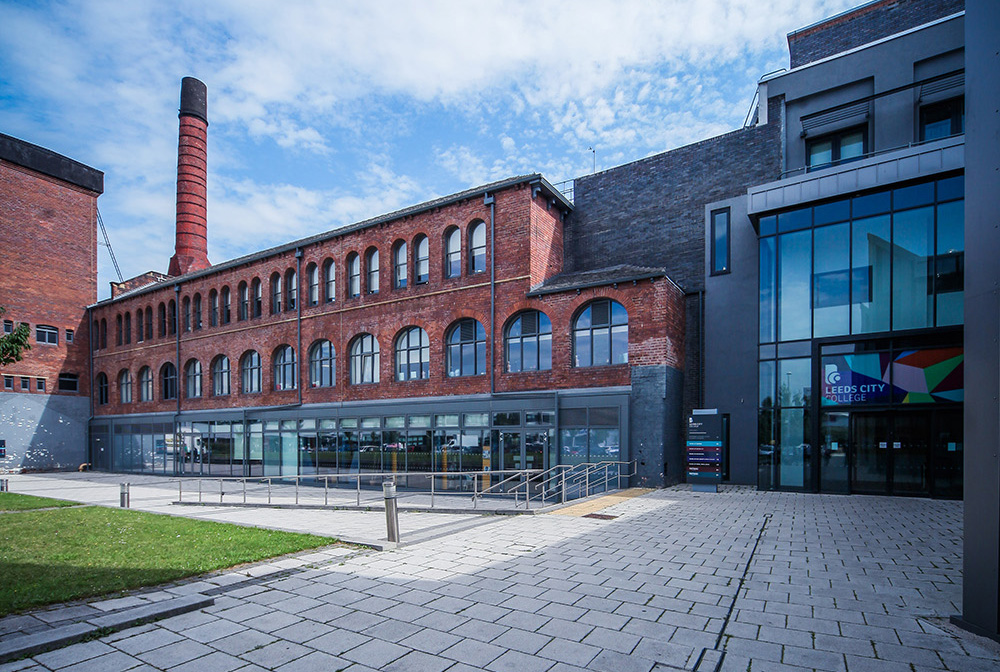
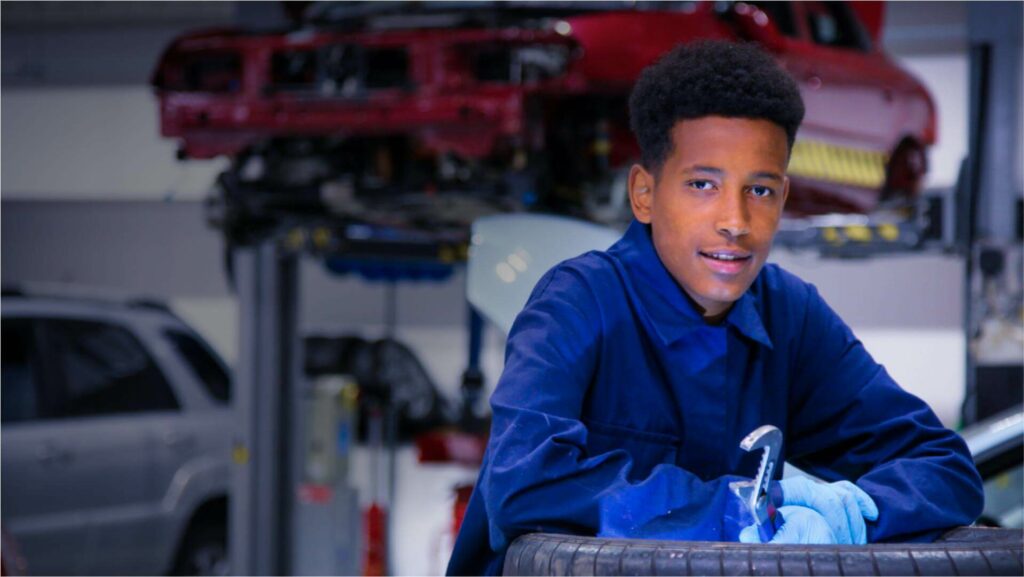
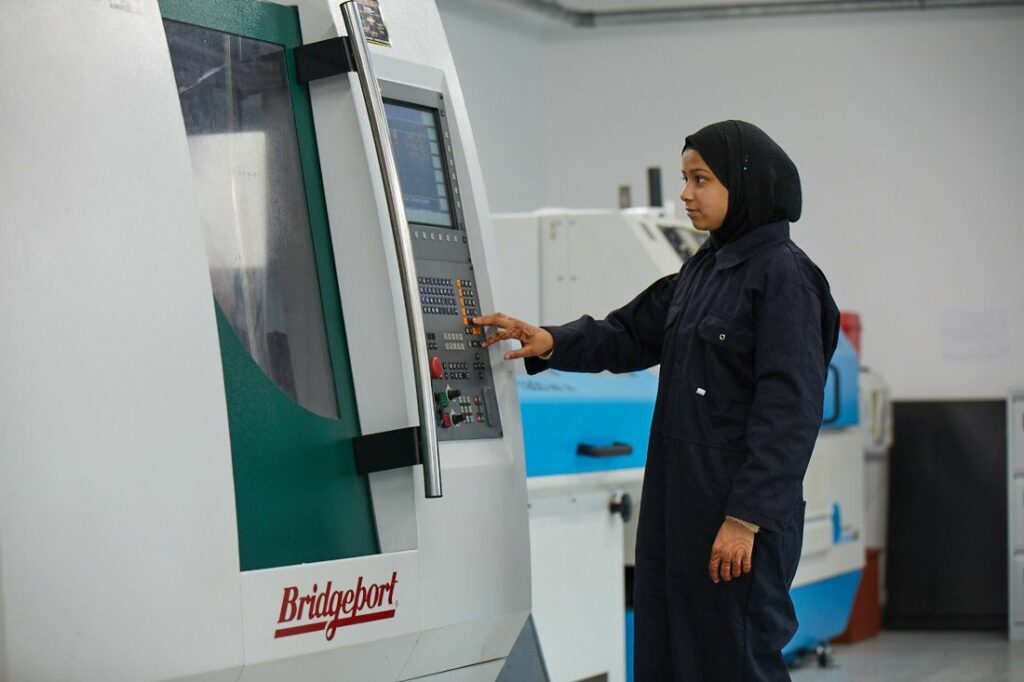
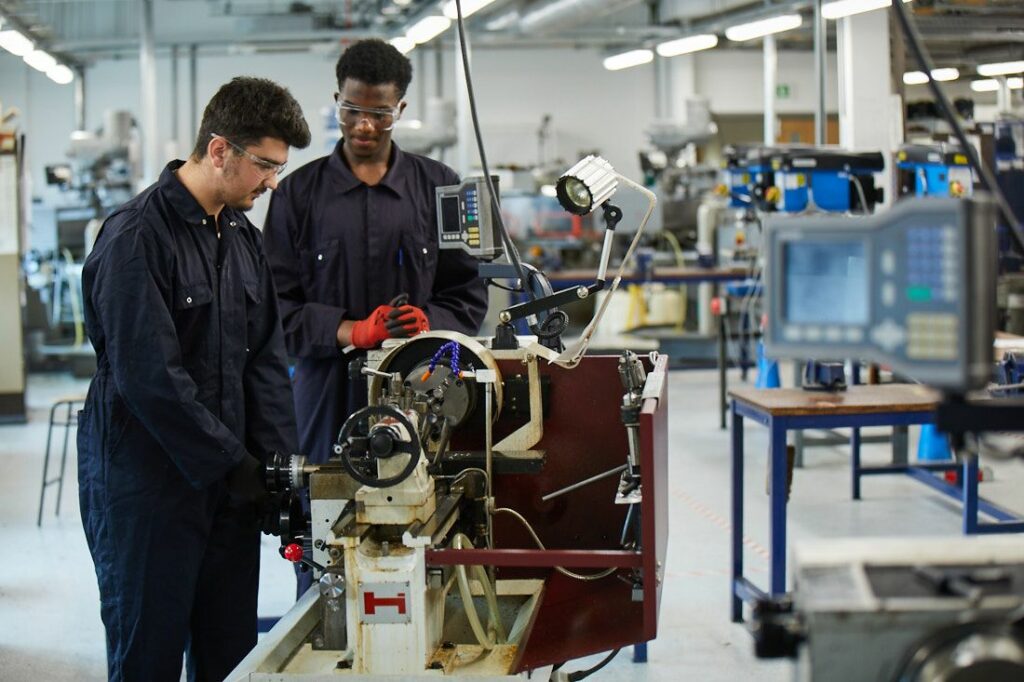
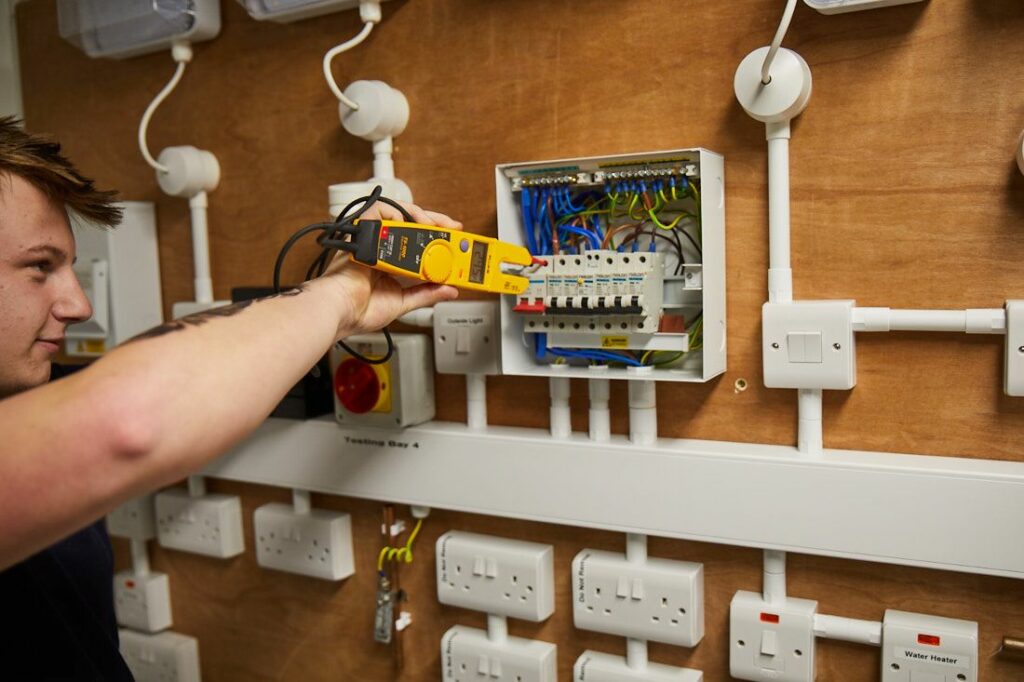
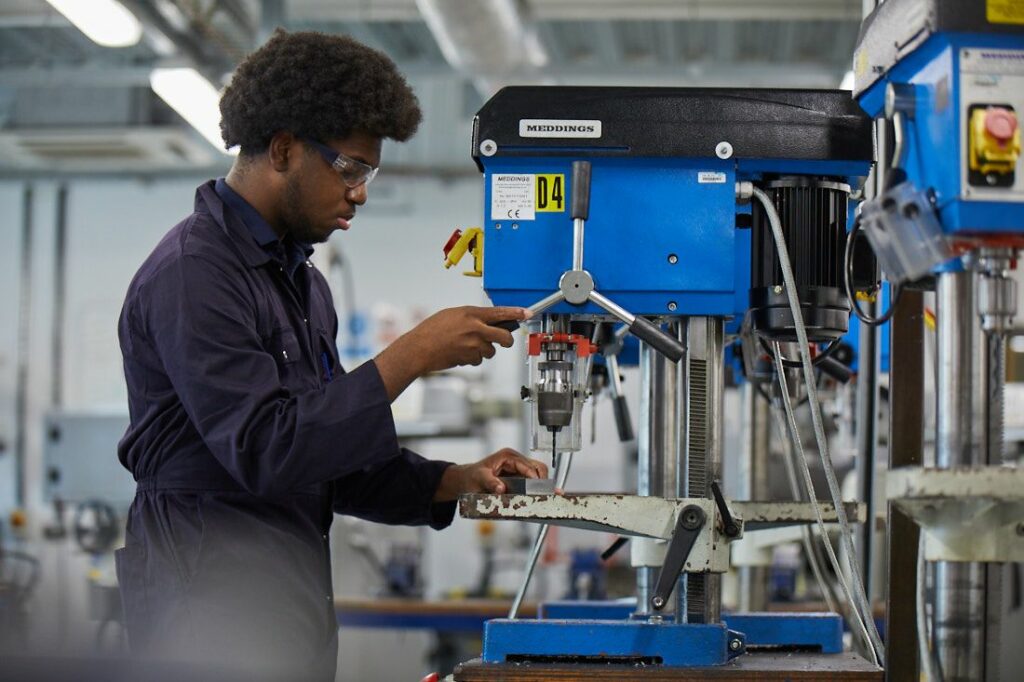
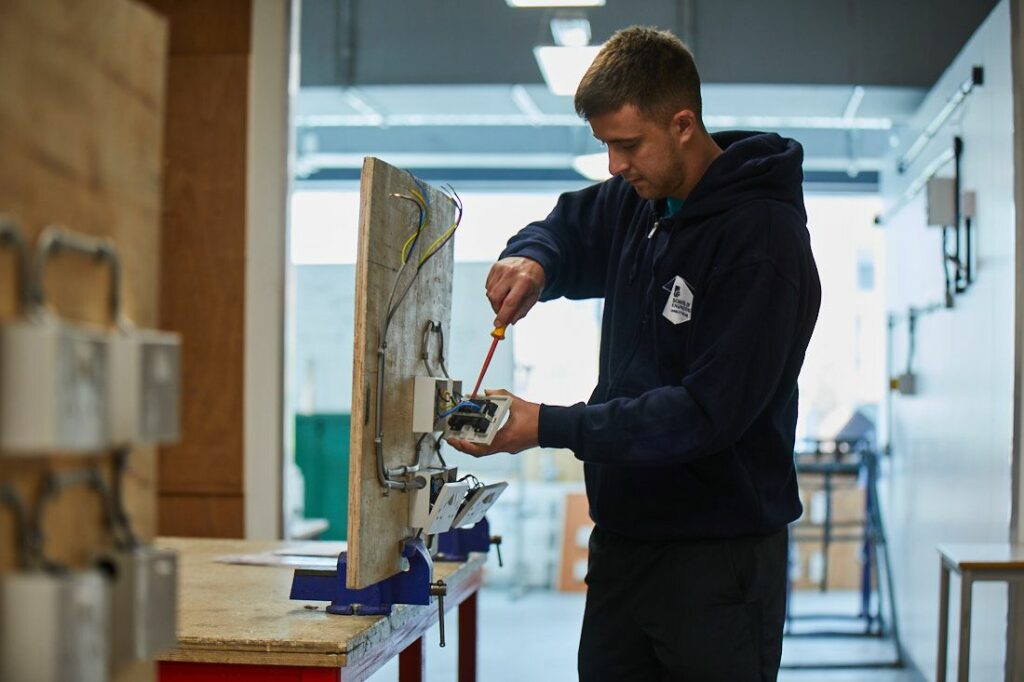
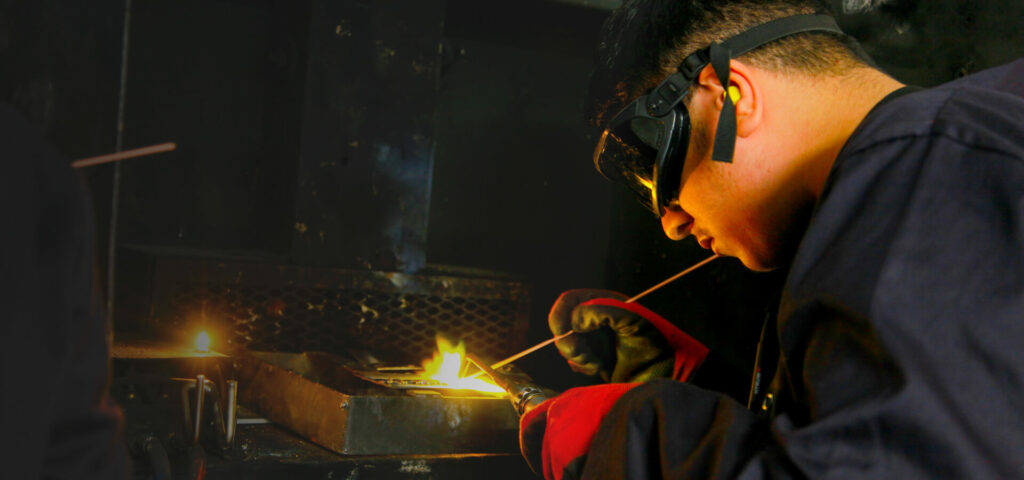
Follow us on Social Media